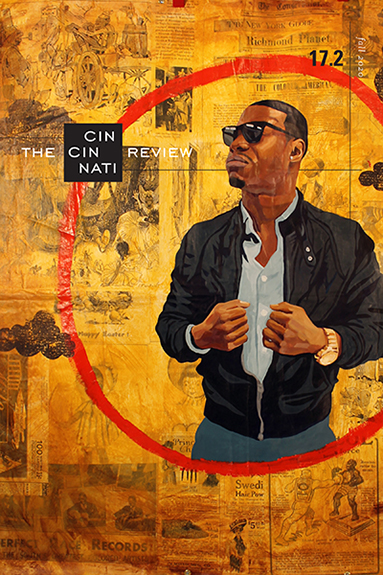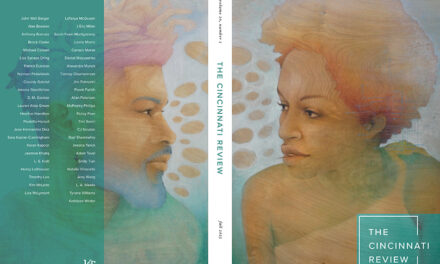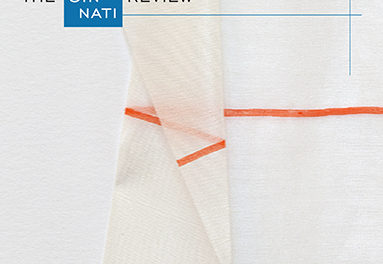I was feeling nostalgic the other day while talking to my wife about the malls of New Jersey. I was surprised she didn’t remember the Woodbridge Mall, the one with the tigers. She’d grown up in Wilmington, Delaware, but that wasn’t so far away.
“The TV show?” I said as a memory jog. Nothing. So I told her how the Woodbridge Mall had been sprawling and adequate, not fancy like the Menlo Park Mall two miles down Route 1 with its posh anchor stores and food court full of healthy choices. For the holidays, the Menlo Park Mall went all out: enormous tree in the atrium, tens of thousands of lights, fake snow, the works. A carousel was brought in special for the season. Track laid all the way from Nordstrom to Lord & Taylor for a train driven by an elf. Toot toot went the little engine.
The Woodbridge Mall couldn’t compete with that level of family-friendly extravagance, so they went in another direction. They found twelve volunteers, chosen for their neediness and grit, and gave them all an hour together in the mall. For those sixty minutes, every item was free, theirs for the taking. They had only to carry the items they wanted to one of the exits. For these twelve people, this was a game changer. Maybe a life changer. This year there would be gifts for their families, gifts for themselves, thank-you gifts, gifts of apology, gifts that spoke of every shade of human connection. Gifts to hock later for cash, if cash was their primary concern. No one would judge. For sixty minutes, everything was theirs. It would be the merriest of Christmases. The happiest of New Years.
“Except,” I reminded Carly, “for the jewelry in the department stores. That was off-limits.”
“Too expensive?” she asked.
“I think that was the official reason. Probably it was more about making good TV.” I remembered the contestants frantically dragging luggage and kitchen appliances and furniture and designer suits and dresses. Way more visually compelling than jewelry in the pockets.
“I guess that makes sense,” my wife said.
Also during that hour, twelve half-starved Bengal tigers were set loose in the mall.
Obviously, this proposition wasn’t for everyone. But the twelve contestants were willing and ready to shop, to appear on TV, and, they hoped, to avoid the tigers. They had signed the release forms and were determined by the show’s team of physicians to be in acceptable physical condition.
“Seriously? None of this is ringing a bell?” I asked my wife. There weren’t even many shows like it back then.
“So, people really got eaten on live TV?” she asked.
“It was taped, not live,” I told her. “And it was all tastefully edited. They knew where to draw the line, editing-wise.”
“But people got eaten?”
“Honey, these were hungry tigers in a mall.” I remembered being a kid, my family together on the sofa, bowl of popcorn, rushing through homework during the commercial breaks. At first the tigers had trouble running on the hard floor. Their claws, designed for the grassy plain, had nothing to grip. Their legs would tangle and slide out from under them. This was played for comedy: the editors added a cartoony whoop-whoop-SPLAT sound effect. Soon, though, the animals got the hang of it. They’d crouch and creep, sniff their new territory. They’d pace and snarl. Dozens of mounted cameras throughout the mall gave the editors plenty to work with. The show’s host drove a golf cart fitted with steel bars. He rode around and narrated in an excited whisper while a cameraman beside him shot footage. He’d spot a tiger and whisper something like “I’ll tell you what, that tiger looks like he wants more than a bologna sandwich.” Or: “I think Anita from Sayreville has her sights on the GE microwave oven with the rotating dish and automatic pizza setting.”
The show, Malled, ended after just nine episodes. During the taping of the last episode, all the contestants banded together and murdered a tiger. Then they kidnapped the host and tied his cameraman to a metal bench to show they weren’t fucking around. They looked right into one of the mounted cameras and said, “This is bullshit. Look what poverty and desperation have done to us.” They demanded passports and plane tickets and money wired to an overseas account. They demanded safe passage. The tigers ate the cameraman. The cops moved in and shot three contestants.
The audience hated it. It’s a game show, they complained. The contestants knew what they were getting into. They had no business getting political.
And I know. It seems like a long time ago, back when children gathered in person for school. Back when the government ran the national parks. Back when radiation levels east of the Mississippi allowed entry. Back when there were shopping malls. Back when there were tigers. Back when Christmas was celebrated on December 25. Back when you could find a microwave oven. Before the Ten-Thousand-Year Flood and the Accident and the invention of the quickbullet. Before the Freedom Rampage. Before Crowdscatter. Before universal bar codes. Before anyone had ever heard of the NX250 virus. Back when airplanes. Back when passports.
But it wasn’t so long ago. I still remembered the one couple they had on the show, how they raced for the exit together, clutching each other, each one also holding a floor lamp, the cords dangling behind. Telling this to my wife, I touched my monitor and she touched hers, and it was almost as if there were no Great Quarantine and she and I were in a room together—truly, the same space. Almost as if we were holding hands.










